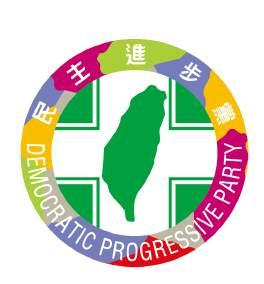M
E
M
B
E
R
P A
R T
I
E
S
The Democrat Party
Contact 67 Setsiri Road, Samsannai Phayathai, Bangkok 10400, Thailand T +66 2 0 2270 0036 F +66 2 0 2279 6086 public@democrat.or.th www.democrat.or.th
The Democrat Party, founded in 1946, is the longest standing party in Thailand, and is one of the longest standing in Southeast Asia as well. Since its inception over 70 years ago, the Democrat Party has held ideologies that oppose all forms of dictatorship, and is committed to the promotion of democracy for the people, and most importantly, by the people. The survival and existence of the DP has not come easily. The party had to go through political struggles throughout its history that has five periods: 1st Period (1946-1967) Party Building, Pro-Democracy and Anti-Dictatorship 2nd Period (1968-1979) Party Rehabilitation and Democracy Promotion 3rd Period (1979-1990) Policy Improvement and Participation in National Administration 4th Period (1991-2000) Leading Party of Opposition and Coalition Government
5th Period (2001-Present) Combating Parliamentary Dictatorship and opposing the abuse of power and conflicts of interest in public sector Introducing the People’s Agenda Throughout its history, the DP has always stood firm on the principles of democracy, freedom, transparency, accountability, and public participation. These principles, stipulated in the Party Guidelines, which guided the party in the last seven decades, and will continue to guide it for many years and generations to come. Under the leadership and guidelines of the Executive Committee, DP aims to provide the Thai public with a viable responsible political alternative to the populist political environment that has been permeating the Thai atmosphere since 2001. Through various schemes and measures implemented since 2008, especially the People’s Agenda, the Party has been able to steer national development toward a new direction. It uses the idea of “policy for the people and by the people”, which highlights the point that “People must come first”. The Party has assured the inclusiveness of its socio-economic
policy and measures. Programs such as 15 years of free education, income-guarantee initiative for farming population, debt relief and access to micro-credits, and social and health security scheme had been launched when they were in the government. Leaders Jurin Laksanawisit Party Leader Chalermchai Sri-on Secretary General Kiat Sittheamorn Chairperson, Foreign Affairs Committee
Democratic Progressive Party The Democratic Progressive Party of Taiwan was founded on 28 September 1986 by political, social, and humanrights activists, along with defence lawyers of political prisoners. It was then Martial Law, and Taiwan was under the authoritarian regime of Chinese Nationalist Party (KMT), which had lost the Chinese Civil War.
Contact Peifen Hsieh Spokesperson/Deputy Director Department of International Affairs 10F, No.30 Beiping E.Rd., Taipei, Taiwan T +866 2 23929989 F +866 2 23930342 www.dpp.org.tw F dpptaiwan
Through social and political movements, and participation in elections, the founders of DPP risked their freedom and their lives to champion a democratic Taiwan. Indeed, DPP played an important role in the consolidation of Taiwan’s democracy. In 2000, DPP captured the presidency. From 2000 to 2008, DPP continued to push for freedom of expression, gender equality, social and transitional justice, judicial impartiality, and democracy. DPP also gained valuable experience and lessons as a young party during its eight years of governance. In 2014, DPP won Taiwan’s ninein – one elections – the largest local polls in Taiwan’s democratic political history – by a landslide. DPP took 13 out of the 22 cities and counties, including four out of six special municipalities. The election was DPP’s best poll showing yet since its founding. At that time, more than 70
percent of Taiwan’s population resided in a DPP-governing city or county. The year 2016 actually marked the 30th anniversary of the party’s founding. Coincidentally, in January 2016, under the leadership of its Chairperson Dr. Tsai Ing-wen, the party won a majority in the Legislative Yuan, clinching 68 of the 113 seats. This was the first time in Taiwan’s political history that the legislature experienced a political transition. Dr. Tsai, DPP’s standard bearer in the elections, and her running mate Dr. Chen Chien-jen meanwhile garnered 6.89 million votes or 56.1 percent of the total. This meant Dr. Tsai would become Taiwan’s first female president. In 2017 DPP pushed through many reforms and progressive laws, including pension reform, a forward-looking infrastructure plan, transitional justice acts, and other important policies geared towards a better Taiwan. In 2019 DPP helped pass the same-sex marriage bill. In 2020 President Tsai Ing-wen resumed her position as the chairperson of the DPP. She has envisioned three goals for the Party to strive for: calling for actively recruiting members from all sectors of society, demanding
77
young engagement participating in the Party, and continuing DPP’s momentum. The three innovative methods aim to maintain the Party’s progressiveness and competitiveness. During the 2020 Presidential Elections, President Tsai Ing-wen won by a landslide for her second term. It was marked as the most number of votes garnered by a presidential candidate in the history of Taiwan. DPP plans to further deepen Taiwan’s democracy and safeguard for the Taiwanese people. Internationally, DPP continues to promote and strengthen the principles of democracy, and advocate for human rights and good governance through close alliances with democratic countries around the world. DPP is a founding member of CALD and member of Liberal International. Leaders Tsai Ing-wen Chairperson Lin Hsi-yao Secretary General








